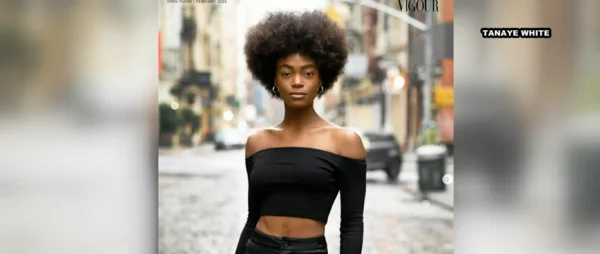By Annie Krall, WBay
“A woman’s hair is her crown” a saying which takes on a deeper meaning for black women. Wearing their natural hair for example in afros or braids is a source of cultural pride. But it sometimes invites social and professional rejection.
Some of the African American women in our community and across the country tell us heavy is the head that wears the crown in the struggle for racial equality. For black women, having access to products and stylists who know how to care for their hair and makeup can be life-changing.
“Just access to basic products sometimes can be a huge barrier to being able to feel really good about how you’re looking,” Renita Robinson the vice-president of diversity and inclusion at Prevea Health shared. “So, with African American hair there are curl patterns and you can have super curly hair. My hair is super super curly. So, when my hair was longer when it was 12 inches long, when it got wet it was probably about an inch. It curls up super tight. You have to straighten it to have it look longer.”
It’s a local problem. Trying to find a hair stylist with different textured hair can be difficult. Which is why visiting black hair stylists like Shear Images Salon in Appleton is so crucial. However, it’s not just a problem of beauty access in Northeast Wisconsin. It’s a national issue.
“I’ve been on sets where I actually came with a full afro like this, it was actually bigger, and I left with my hair straight, and it wouldn’t revert back,” model, entrepreneur, and mental health advocate Tanaye White remembered. “I’ve been on sets where the makeup artists didn’t have my foundation color and I was literally on set looking like Casper the Ghost. I’ve been on sets where I’ve had to run into the bathroom and do my makeup myself because no one knew or had what I needed.”
Working for brands like Adidas, Sports Illustrated, and Juicy Couture featuring her natural afro, Tanaye said was a turning point in her career. As was the summer of 2020 for the modeling industry after the race riots with the creation of the Black Beauty Roster. An entertainment industry directory of hair and makeup artists with expertise on people of color.
An initiative to prevent models showing up to fashion shows and feeling, “just exhausting,” Mamè Adjei, a model, actress, and activist, emphasized. “Exhausting and a little traumatizing to be honest because we’ll go on set and I would just love to get up and be on set like my white counterparts and not worry about doing my hair or makeup. But I have to come prepared as with anything in life.”
When asked about having that expertise about different skin tones and different hair types, how important is that to sort of see makeup artists who are able to work on models like you, who actually have that familiarity that a lot of times wasn’t there.
“I love Black Beauty Roster because they really amplify the voice of D&I,” Tanaye replied.
Showcasing the beauty and strength of black women in Northeast Wisconsin.
“If a person doesn’t feel good about belonging or has issues around belonging and those kind of things,” Renita said. “Of course not looking good is only going to exacerbate it particularly if there is bullying. Or if there are environments where people are making comments to make you feel more vulnerable.”
These black women emphasized three points. First, fostering positivity and understanding even if you don’t regularly have to think about your hair. Secondly, to use resources like YouTube to learn more and be an ally or do outreach. Finally supporting local black hair stylists or joining the Black Beauty Roster to inspire change.
Click here to read the full article on WBay.



